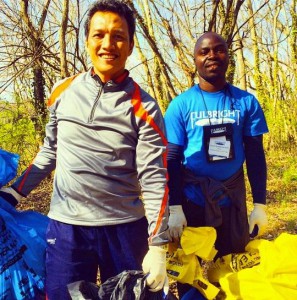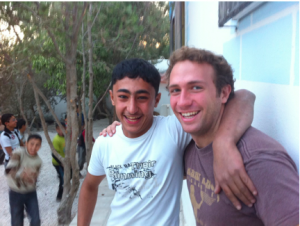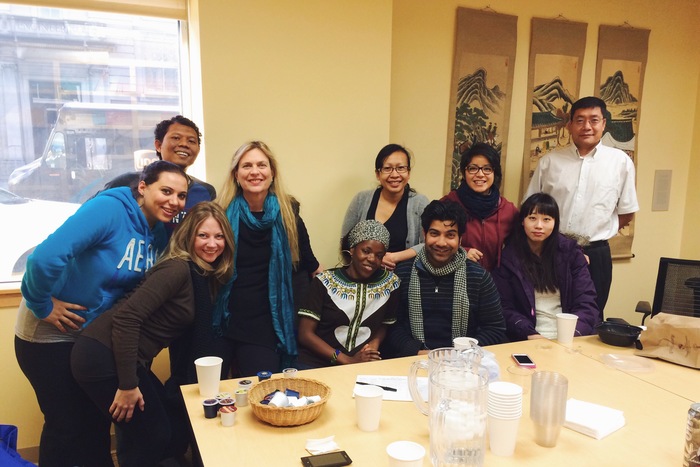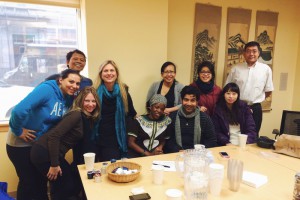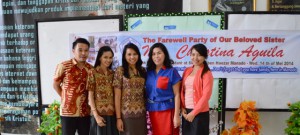
Christina Aguila, 2013-2014, Fulbright English Teaching Assistant to Indonesia (center), attending her surprise farewell party with fellow teachers in batik uniforms, an Indonesian tradition
One year ago, I was living in Manado, Indonesia on the island of Sulawesi as a Fulbright English Teaching Assistant (ETA). I taught at a local high school, volunteered at a rural community English camp, and organized local English competitions. After four months, I had acclimated to many aspects of Indonesian culture, learned the local language, communicated in an indirect Indonesian manner, and ate extremely spicy food. I also learned to live with limited access to hot showers and reliable Wi-Fi. I developed deeper friendships with teachers at my school and got to know a few of my 300 students more personally. I was fully immersed in an Indonesian community, which taught me to be extremely patient and flexible.
Most importantly, I learned how to handle the process of cultural adaptation. Each stage of cultural adaptation comes with new accomplishments and unexpected challenges. One day I would be feeling confident in my ability to speak Bahasa Indonesia, and the next day I would sometimes feel very frustrated about a misunderstanding at my school.

